For those in the UK looking to go into business for themselves, setting up the best sole trader bank account is an important step.
As soon as you become self-employed, your existing personal and current accounts will no longer suffice. Having the right tools in place – like a suitable business banking solution – can make all the difference when it comes to staying organised and making sure your finances are compliant with applicable regulations.
Top 10 featured sole trader bank accounts
| Bank | Account | Details | View offer |
|---|---|---|---|
 |
Airwallex ✓ Multi-Currency Account With Local Details ✓ International Transfer At Interbank Rates ✓ Borderless Cards & Expense Management Pricing • Trial period • Contact |
View Deal | |
 |
Revolut Business ✓ Business Current Account ✓ Award-Winning Mobile App ✓ Quick & Easy Application Process Pricing • Trial period • Contact |
View Deal | |
 |
Tide Business Bank Account ✓ Free, Plus, or Pro Account ✓ iOS & Android Mobile App ✓ Upload & Auto-Match Receipts Pricing • Trial period • Contact |
View Deal | |
 |
Card One Money ✓ No Credit Checks ✓ Simple Fees ✓ Up to 3.5% Cashback Pricing • Trial period • Contact |
View Deal | |
 |
ANNA Money ✓ Apply in 10 minutes ✓ Bookkeeping & Payroll Tools ✓ User-Friendly Mobile App Pricing • Trial period • Contact |
View Deal | |
 |
Co-Op Business Bank Account ✓ Business Current Account ✓ Online, App & High Street Banking ✓ Quick & Easy Application Process Pricing • Trial period • Contact |
View Deal | |
 |
HSBC Business Bank Account ✓ Business Current Account ✓ In-Branch, Online & App Banking ✓ FSCS Protected Pricing • Trial period • Contact |
View Deal | |
 |
Metro Business Bank Account ✓ Business Current Account ✓ High Street Presence ✓ FSCS Protected Pricing • Trial period • Contact |
View Deal | |
 |
Mettle Business Bank Account ✓ Business Bank Account ✓ Online & App ✓ Quick & Easy Application Process Pricing • Trial period • Contact |
View Deal | |
 |
Monzo Business Bank Account ✓ Business Current Account ✓ Dedicated mobile app experience ✓ FSCS Protected Pricing • Trial period • Contact |
View Deal | |
 |
Virgin Money Business Banking ✓ Business M Account ✓ In-Store, Online & App Banking ✓ Insights & Forecasting Platform Pricing • Trial period • Contact |
View Deal |
Read on to find out exactly why it’s so important to open up a dedicated bank account for sole trading purposes, as well as which ones offer good value for money.
Best sole trader bank accounts
| Bank | Lowest monthly fee | Offers current account | Offers savings account | Overdraft available |
|---|---|---|---|---|
| Acorn Account | £12.50 | Yes | No | No |
| Aldermore | Free | No | Yes | No |
| Allied Irish Bank | £2.50 | Yes | Yes | Yes |
| Amaiz | £9.99 | Yes | No | No |
| ANNA Money | £14.90 | Yes | No | No |
| Bank of Scotland | Free | Yes | Yes | Yes |
| Barclays | £8.50 | Yes | No | No |
| Bunq | € 4.99 | Yes | No | No |
| Cambridge Building Society | Free | No | Yes | No |
| Card One Money | £12.50 | Yes | No | No |
| Cashplus | Free | Yes | No | No |
| Co-operative Bank | £7 | Yes | Yes | Yes |
| Countingup | Free | Yes | No | No |
| Cumberland Building Society | Free | Yes | Yes | Yes |
| Cynergy Bank | £5 | Yes | Yes | Yes |
| Fair Everywhere | £12.50 | Yes | No | No |
| Holvi | € 9 | Yes | No | No |
| HSBC | £6.50 | Yes | Yes | Yes |
| Lloyds Bank | Free | Yes | Yes | Yes |
| Masthaven | Free | No | Yes | No |
| Metro Bank | £6 | Yes | Yes | Yes |
| Mettle | Free | Yes | No | No |
| Monese | £9.95 | Yes | No | No |
| Monzo | Ask | Yes | Yes | No |
| Nationwide | Free | No | Yes | No |
| NatWest | Free | Yes | Yes | Yes |
| Redwood Bank | Free | No | Yes | No |
| Revolut Business | £7 | Yes | No | No |
| Royal Bank of Scotland | Free | Yes | Yes | Yes |
| Santander | £7.50 | Yes | Yes | Yes |
| Shawbrook Bank | Free | No | Yes | No |
| Starling Bank | Free | Yes | No | No |
| Tide | £9.99 | Yes | No | No |
| TSB | £5 | Yes | Yes | Yes |
| Ulster Bank | £2.67 | Yes | Yes | Yes |
| Virgin Money | £6.50 | No | Yes | No |
| Wise | Free | Yes | No | No |
Acorn Account
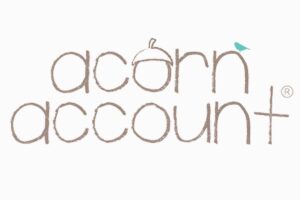
Acorn has been offering current accounts and payment services since 2007. They focus on accessibility, providing highly functional accounts that are easy to open with no credit checks, signatures, or branch visits required. Acorn emphasises inclusivity, not excluding customers based on financial history.
Fees and charges
Acorn Account has a monthly fee of £14.50, with an additional £5 per month for a secondary cardholder. ATM withdrawals incur a £1.50 charge, and the maximum daily withdrawal limit is £450. The account also has a maximum initial load of £1,250 and a maximum card balance of £5,000. Using the account abroad is more expensive, with a £3 withdrawal fee plus a 2.75% surcharge. Checking the balance via SMS costs 15p per inquiry.
Benefits for sole traders
The account offers easy management of regular bills and tracking of spending, aided by an experienced account manager. It’s also suitable for individuals who prefer not to be judged on their financial history and for those who might need a shared account for managing bills and budgeting.
Read our Acorn Account review or visit the website.
Aldermore
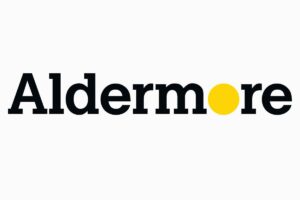
Aldermore is an award-winning bank, established for over a decade, with a customer base of over a quarter of a million. They offer a range of specialist mortgages, savings accounts, and business finance solutions, aiming to support the financial needs of growing businesses in the UK.
Fees and charges
For business savings accounts, Aldermore requires an opening balance of £1,000 up to £1 million. The accounts are open to sole traders, among other business entities, and there are no fees for standard account services, though charges may apply for non-standard services.
Benefits for sole traders
Aldermore provides competitive interest rates, up to 4.50% AER, on their business savings accounts. They offer easy access accounts with unlimited fee-free withdrawals and fixed-rate accounts for those who can lock away funds for six months to a year. Deposits are protected by the FSCS.
Read our Aldermore review or visit the website.
Allied Irish Bank
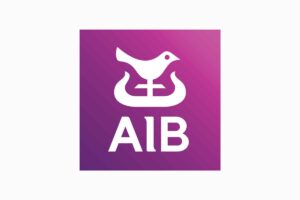
Allied Irish Bank, with its roots in Ireland, operates a banking division in Great Britain, offering a range of bank accounts, saving products, and loans. They have 21 branches in Britain, and some services are also available at Post Offices.
Fees and charges
The bank has various fees for its business current account, including a £10 quarterly account fee. Debit card transactions, direct debits, and standing orders cost 55p each. For cash and coins paid in at a bank branch, the charge is 65p per £100 or £1.50 per £100, and at a Post Office, it’s 65p per £100 for notes and coins and 70p each for cheques cashed.
Benefits for sole traders
The bank offers in-person banking at its branches and Post Offices, internet banking, and a business debit card that can be used globally. However, it is noted that their fee structure is not the most competitive and they only offer one type of business account.
Read our Allied Irish Bank review or visit the website.
Amaiz
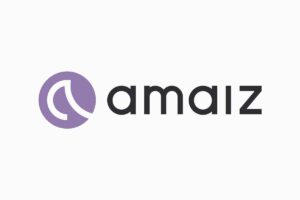
Amaiz is a fintech company that launched in June 2019, offering digital-only current accounts to sole traders and limited companies. Their accounts integrate banking, invoicing, and accounting.
Fees and charges
The cost of an Amaiz account ranges from £4.99 to £9.99 a month, plus VAT, depending on the plan chosen. Business accounts for established and growing businesses cost between £24.99 and £99 per month. UK card payments, bank transfers, and ATM withdrawals are included in the fee, with a daily withdrawal limit of £500. Charges apply for card use abroad, including 0.5% to 1% of transactions and £1.25 to £2 for ATM withdrawals.
Benefits for sole traders
Amaiz accounts can be set up quickly and offer a comprehensive range of features, including a card freeze option, push notifications, a sub-account for savings, spending charts, an invoicing tool, and free accounting advice. However, there are no overdrafts or credit facilities, and some planned features are not yet available.
Read our Amaiz review or visit the website.
ANNA Money

ANNA Money provides online business current accounts and digital assistant services, particularly aimed at small and medium-sized enterprises (SMEs). It offers a business account with a debit card and an app for managing banking and invoices.
Fees and charges
ANNA Money has a Pay As You Go plan with no monthly fee, a Business plan with monthly or annual fees (first month free), and a Big Business plan for larger businesses with a higher monthly fee but more benefits. They also offer an add-on option called + Taxes for tax and bookkeeping tools.
Benefits for sole traders
ANNA offers easy setup, a user-friendly app with money management features, integrated invoice and expense services, 24/7 in-app support, integration with accounting software like Xero and Sage, and the ability to calculate and submit VAT returns. However, it does not provide credit facilities or overdrafts, and a traditional bank account may still be needed for some business needs.
Read our ANNA Money review or visit the website.
Bank of Scotland
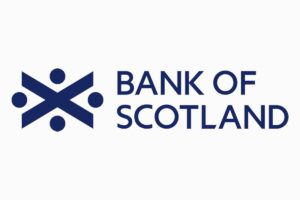
The Bank of Scotland, based in Edinburgh, has a history dating back to the 17th century. They offer a wide range of banking services for individuals and businesses, with services structured according to business turnover.
Fees and charges
After a 12-month period of free day-to-day banking, the Bank of Scotland charges a monthly account fee of £7.00. Electronic payments are free, cash payments in or out cost £1 per £100 (for the first £1500 per month) and then £0.90 per £100. Cheques and incoming credits are charged at £0.85.
Benefits for sole traders
The bank provides simple banking services and dedicated support for new businesses. They also offer the Business KnowledgeBox, a collection of online guides and reports covering various business topics, written by industry experts.
Read our Bank of Scotland review or visit the website.
Barclays
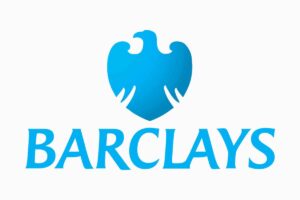
Barclays is one of the largest banks in the UK, serving over one million business banking customers across various account types. They cater to a broad range of companies, including sole traders, startups, and large corporations.
Fees and charges
For the Mixed Payments Plan, Barclays charges a monthly fee of £8.00, with debit card and electronic payments at £0.35, cheques at £0.65, and cash payments at £0.90 per £100. The ePayments Plan has a monthly fee of £8.50, with free electronic payments but higher charges for cheques and cash payments.
Benefits for sole traders
Barclays offers mobile banking, secure online banking, 24/7 UK-based customer support, business debit and credit cards, access to specialist business management teams, time-saving tools, and additional features like Barclaycard Anywhere for customer payments.
Read our Barclays review or visit the website.
Bunq

Bunq is a challenger bank providing complete spending freedom worldwide, with accounts supporting up to 25 different currencies. However, it’s important to note that Bunq is only open to customers with a residential address within the European Economic Area, so UK-based sole traders are not eligible to apply.
Fees and charges
Bunq does not charge monthly or annual fees for its business accounts, but there are some costs for foreign exchange transactions, Apple Pay and Android Pay payments, and ATM withdrawals.
Benefits for sole traders
Bunq offers three different business accounts, each with a 30-day free trial. The accounts include options for frequent travellers, in-app bookkeeping, multiple currency accounts, and spending caps on digital credit cards. There’s also an Easy Savings Business account with an interest rate of 1.05% and two free withdrawals per month.
Read our Bunq review or visit the website.
Cambridge Building Society

Cambridge Building Society is suitable for sole traders or SMEs based in Cambridge, offering savings accounts. However, they do not provide current accounts or lending services and have branches only in Cambridge with no online banking.
Fees and charges
There are no fees for the savings accounts, but Cambridge Building Society imposes minimum deposit amounts, overdraft fees, and transfer and foreign exchange fees for some services.
Benefits for sole traders
They offer three types of business savings accounts: Business Saver, Notice Business Saver, and One Year Fixed Rate Business Bond accounts, each with different interest rates and withdrawal conditions. These accounts are managed in-branch, by post, or over the phone.
Read our Cambridge Building Society review or visit the website.
Card One Money
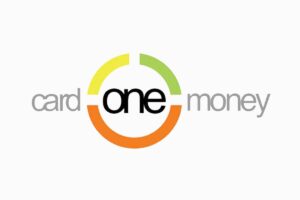
Established in 2007 and now owned by FairFX, Card One Money offers payment services and accounts for personal and business use, with over 600,000 personal accounts and 24,000 business customer accounts.
Fees and charges
There is a £55 application fee and a monthly fee of £12.50 for the business bank account. Other charges include fees for depositing cash or cheques, electronic credits, and ATM withdrawals, both in the UK and abroad. There are also fees for various other transactions and services.
Benefits for sole traders
The account is designed for small businesses, with a quick online setup process and no credit check required. Features include online and mobile banking, a Prepaid Corporate Mastercard eligible for cashback rewards, and the ability to manage finances efficiently.
Read our Card One Money review or visit the website.
Cashplus

Cashplus is a digital-only UK challenger bank, offering consumer and business banking and lending services. They introduced the first general-purpose prepaid card in the UK and the first instant approval online business account.
Fees and charges
Cashplus offers two account types: Business Go (no monthly fee) and Business Extra (£9 a month). Business Go has an account limit of £50,000, with fees for additional transactions, ATM use, and cash deposits at Post Offices. Business Extra has a higher account limit and more free transactions, with similar fees for excess transactions.
Benefits for sole traders
Cashplus accounts offer FSCS protection, quick setup, access to credit facilities, and are suitable for sole traders, limited companies, and LLPs. The Business Extra account also includes the Cashplus Business Creditbuilder to help improve credit scores.
Read our Cashplus review or visit the website.
Co-operative Bank

The Co-operative Bank, established in 1872, is a UK-based commercial bank known for its ethical banking approach. It offers a range of financial products including personal and business banking services, emphasising social responsibility and customer service.
Fees and charges
The Co-operative Bank’s Business Directplus account offers 30 months of free everyday banking for new customers, provided they deposit less than £2,000 cash per month. After the free period, a monthly fee of £7 applies. Additional fees include 70p per £100 for cash deposits exceeding the monthly limit, 30p per cheque paid in or issued, and standard charges for unarranged borrowing.
Benefits for sole traders
The Co-operative Bank is particularly suitable for sole traders who value ethical banking practices. The initial 30-month period of free banking can significantly lower the costs for new businesses. Additionally, the bank offers online and mobile banking services, facilitating easy management of finances and transactions. Their focus on customer service and community values also aligns with the needs of many sole traders seeking a more personalised banking experience.
Read our Co-operative Bank review or visit the website.
Countingup

Countingup is an e-money service offering easy-to-set-up business accounts, bundled with smart accounting tools, aimed at sole traders and small businesses. It is managed entirely through a mobile app and provides financial insights and instant notifications.
Fees and charges
Monthly fees are based on total monthly deposits: £3 for deposits up to £750, £9 for £750 to £7,500, and £18 for deposits over £7,500. There are also transaction fees for various services like ATM withdrawals, cash deposits, and account transfers.
Benefits for sole traders
The account offers built-in accounting software, automated bookkeeping, tax estimates, business data analysis, and the possibility of accessing business loans. However, there are account limits based on the business structure, and FSCS protection is not available.
Read our Countingup review or visit the website.
Cumberland Building Society

Based in Cumbria, Cumberland Building Society operates branches in Cumbria, South West Scotland, West Northumberland, and North Lancashire.
Fees and charges
They offer three business account options. Option A has a £5 monthly fee and charges for various transactions. Option B has a £3 monthly fee with fewer transaction charges. The Standard Free Account is for schools and non-profits, with no maintenance fee and no charges for most transactions.
Benefits for sole traders
The society offers different account options depending on the nature of the business and daily transactions, including an option for businesses with a high proportion of cash and cheque transactions.
Read our Cumberland Building Society review or visit the website.
Cynergy Bank
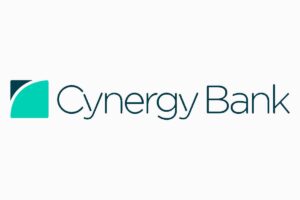
Cynergy Bank, replacing the Bank of Cyprus in the UK, operates over-the-counter transactions in HSBC branches. However, it does not offer a mobile app.
Fees and charges
Their single business current account requires a £10 opening deposit and charges a quarterly maintenance fee of £15. There are also fees for electronic credits, cheques, debit card purchases, direct debit payments, ATM withdrawals, and cash transactions.
Benefits for sole traders
The bank offers basic business banking services but lacks some of the modern digital banking conveniences such as a mobile app and a wider range of account options.
Read our Cynergy Bank review or visit the website.
Fair Everywhere

Fair Everywhere provides a multi-currency business current account that can be managed online. The account is designed for international transactions, offering the ability to send and receive payments in any currency worldwide.
Fees and charges
The account costs £12.50 per month, with some additional payment and transaction fees applicable.
Benefits for sole traders
The account includes an international MasterCard usable in 210 countries, with up to a certain percentage of cashback on purchases from various high street retailers. It also plans to integrate with online tools like Sage, QuickBooks, and Xero. However, there are additional fees for certain transactions and services.
Read our Fair Everywhere review or visit the website.
Holvi

Holvi, founded in Finland, is a digital banking service designed for freelancers and small business owners. It combines banking with powerful financial management tools. The platform offers an integrated experience where users can manage their business finances, including invoicing, expense management, and bookkeeping.
Fees and charges
Holvi has a tiered pricing structure with its ‘Grower’ plan being free and the ‘Complete’ plan costing €12 per month. There are no fees for card payments in Euro, but a 2% fee is charged for non-Euro transactions. Cash withdrawals are charged at €2.5 per transaction. Additional fees may apply for services like invoicing and bookkeeping tools.
Benefits for sole traders
Sole traders benefit from Holvi’s digital-first approach, which allows for efficient financial management from a single platform. The ability to create and track invoices, categorise expenses, and have an overview of financial health in real-time is particularly useful for managing a sole trader business.
Read our Holvi review or visit the website.
HSBC
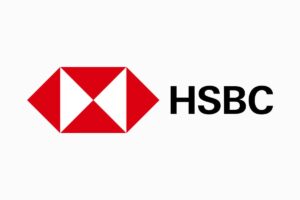
HSBC is one of the world’s largest banking and financial services organisations, serving millions of customers worldwide. In the UK, HSBC offers a range of services including personal, business, and commercial banking.
Fees and charges
HSBC’s business bank account for start-ups offers 18 months free banking for new businesses and a 12-month fixed price period for established businesses. Standard fees apply thereafter, including transaction fees and monthly account fees, which vary depending on the type of transaction and the account package chosen.
Benefits for sole traders
HSBC provides a comprehensive range of services and support for sole traders, including access to a dedicated business manager, online banking services, and a variety of lending and credit options. The initial free banking period can be particularly beneficial for new sole traders looking to establish their business.
Read our HSBC review or visit the website.
Lloyds Bank
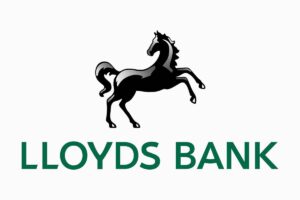
Lloyds Bank, with a history stretching over 250 years, offers a wide range of banking and financial services. They have a strong focus on business banking, providing support to businesses of all sizes, including sole traders and small businesses.
Fees and charges
Lloyds Bank offers a range of business accounts with different fee structures. They typically offer a free initial period of up to 18 months for new businesses, followed by a monthly fee and transaction charges. Specific fees depend on the account and services used.
Benefits for sole traders
Lloyds Bank offers tailored support for sole traders, including access to a dedicated relationship manager and specialist advice. Their online and mobile banking services make it easy to manage finances on the go. Additionally, the bank provides various tools and resources to help with business planning and growth.
Read our Lloyds Bank review or visit the website.
Masthaven

Masthaven is a relatively new player in the UK banking sector, focusing on providing flexible and tailored banking solutions. They offer a range of savings products as well as mortgage and loan options.
Fees and charges
As Masthaven primarily focuses on savings and lending, they do not offer a typical business current account. Therefore, there are no standard business banking fees or charges associated with current accounts. However, for their savings and loan products, terms and fees vary based on the product chosen.
Benefits for sole traders
Masthaven’s strength lies in its flexible savings accounts and lending solutions, which can be beneficial for sole traders looking for competitive interest rates on savings or needing bespoke financing options for business growth or cash flow management.
Read our Masthaven review or visit the website.
Metro Bank
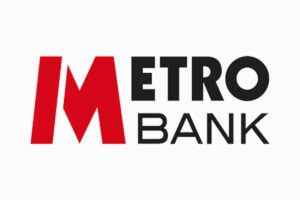
Metro Bank, established in 2010, revolutionised high street banking with its customer-first approach. Known for its physical branches that offer extended hours, including weekends, it caters to personal and business banking needs.
Fees and charges
Metro Bank’s business account comes with a £5 monthly fee. For transactions, cash deposits up to £5,000 per month are free, then charged at 0.5%. Cash withdrawals and direct debits are free. They also provide a tailored tariff for businesses with larger transaction volumes.
Benefits for sole traders
Metro Bank is particularly beneficial for sole traders who prefer in-person banking experiences. The extended opening hours and instant in-branch services, like printing debit cards, offer convenience and immediacy. The transparent fee structure helps sole traders in budgeting and financial planning.
Read our Metro Bank review or visit the website.
Mettle

Launched by NatWest in 2018, Mettle is a free digital banking platform targeted at small businesses and freelancers. It operates entirely online, offering features like invoicing, receipt capture, and transaction categorisation directly through its app.
Fees and charges
Mettle distinguishes itself with a completely fee-free model. There are no charges for account maintenance, electronic payments, ATM withdrawals, or deposits. This no-fee approach extends to all their digital banking services.
Benefits for sole traders
Mettle’s app-centric service offers sole traders a comprehensive overview of their finances, enabling easy tracking and categorisation of transactions. The integrated invoicing and expense management tools streamline financial administration, making it a suitable choice for sole traders looking for efficient and cost-effective banking solutions.
Read our Mettle review or visit the website.
Monese

Founded in 2015, Monese is a digital-only bank that offers quick and inclusive banking solutions. Its services are especially tailored for expats, digital nomads, and those who require swift, hassle-free account setup without traditional residency requirements.
Fees and charges
Monese offers three personal account plans: Simple (free), Classic (£4.95 per month), and Premium (£14.95 per month). The business account costs £9.95 per month. Fees for international transfers range from 0.5% to 2%, and ATM withdrawals are free up to £200 per month, then charged at 2%.
Benefits for sole traders
Sole traders benefit from Monese’s rapid account setup and multi-currency capabilities, making it ideal for international transactions. Real-time notifications and transaction categorisation in the app assist in efficient financial management, especially useful for those managing their business on the go.
Read our Monese review or visit the website.
Monzo

Monzo, launched in 2015, has become a prominent figure in the digital banking space in the UK. Known for its user-friendly app and innovative features, Monzo caters to a wide range of customers, including sole traders and small businesses.
Fees and charges
Monzo offers business accounts with two main plans: Pro (£5 per month) and Lite (free). The Pro account includes features like tax pots, multi-user access, and integrated accounting. Cash deposits cost £1 at PayPoints, and cash withdrawals in the UK are free up to £200 every 30 days, then a 3% charge applies.
Benefits for sole traders
The Pro account from Monzo is particularly beneficial for sole traders, offering features like invoice creation, expense categorisation, and a tax pots feature that sets aside a percentage of earnings for tax. The integration with accounting software like Xero and FreeAgent simplifies financial management.
Read our Monzo review or visit the website.
Nationwide
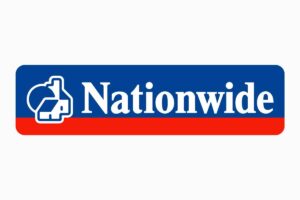
Nationwide, the world’s largest building society, has a reputation for customer-focused services and a wide range of financial products. While primarily known for personal banking and mortgages, it also provides business banking services.
Fees and charges
Nationwide currently does not offer a specific business bank account for sole traders or small businesses. Their focus remains on personal banking accounts, savings, mortgages, and loans, with fees and charges varying depending on the product.
Benefits for sole traders
While Nationwide does not provide dedicated business accounts, sole traders can benefit from their range of personal financial products, like savings accounts with competitive interest rates and personal loans that can be used for business purposes.
Read our Nationwide review or visit the website.
NatWest

NatWest, part of the Royal Bank of Scotland Group, is a major retail and commercial bank in the UK. It offers a wide array of banking services, including dedicated accounts for small businesses and sole traders.
Fees and charges
NatWest’s business bank account comes with an 18-month free banking period for start-ups. After this, a £6.50 monthly fee applies, plus transaction charges like 35p per £100 for cash deposits and withdrawals. Standard electronic payments are usually free.
Benefits for sole traders
NatWest provides a comprehensive support package for sole traders, including access to a free financial health check and a business growth enabler programme. The initial 18-month free banking period is particularly attractive for new businesses, helping to reduce overheads while getting established.
Read our NatWest review or visit the website.
Redwood Bank

Established in 2017, Redwood Bank is a UK-based challenger bank focusing on small and medium-sized enterprises (SMEs). It offers savings accounts and lending solutions, with an emphasis on personalised service and understanding the unique needs of each business.
Fees and charges
Redwood Bank primarily offers savings products for businesses. They do not provide a standard business current account. Therefore, there are no typical transaction fees or monthly account charges associated with such accounts. For their savings products, terms and interest rates vary, but they generally offer competitive rates for business savings.
Benefits for sole traders
While Redwood Bank does not offer traditional business current accounts, its savings accounts can be beneficial for sole traders looking to earn interest on their surplus funds. The bank’s focus on SMEs means they have a good understanding of the challenges faced by sole traders, offering tailored advice and support.
Read our Redwood Bank review or visit the website.
Revolut Business

Revolut Business, launched by Revolut in 2017, is a digital-only banking platform designed for businesses of all sizes. It offers a range of features including multi-currency accounts, international transfers, and corporate cards.
Fees and charges
Revolut Business has several account plans, starting with the Free plan, which has no monthly fee but limited features. The Grow plan costs £25 per month, the Scale plan is £100 per month, and the Enterprise plan has custom pricing. Features and fees vary by plan, with lower foreign exchange fees and more free international payments on higher plans.
Benefits for sole traders
Sole traders using Revolut Business benefit from the flexibility of managing multiple currencies and easy international payments, which is ideal for those engaged in cross-border trade. The platform’s analytics and expense management tools also aid in financial tracking and budgeting.
Read our Revolut Business review or visit the website.
Royal Bank of Scotland
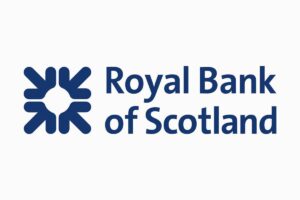
The Royal Bank of Scotland (RBS), part of the NatWest Group, is a major Scottish bank offering a wide range of banking services, including dedicated solutions for businesses and sole traders.
Fees and charges
RBS offers a business bank account with an 18-month free banking period for new businesses. After this period, a £5 monthly fee applies, and standard transaction fees include 35p per £100 for cash deposits and withdrawals. Electronic payments are typically free.
Benefits for sole traders
RBS provides a range of support services for sole traders, including access to free business skills courses and digital tools for financial management. The free banking period is a significant advantage for new sole traders, helping to reduce costs in the crucial early stages of business development.
Read our RBS review or visit the website.
Santander
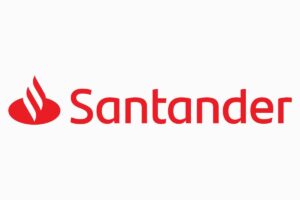
Santander, a major global bank with a strong presence in the UK, offers a wide range of banking services including accounts tailored for businesses and sole traders. Known for its customer service and extensive branch network, it caters to a variety of financial needs.
Fees and charges
Santander’s business current account comes with a monthly fee of £7.50. For cash deposits, a fee of 0.5% is charged on amounts over £1,000 per month. Electronic payments, including direct debits and standing orders, are free. ATM withdrawals in the UK are also free of charge.
Benefits for sole traders
Santander’s business account offers a straightforward fee structure, which is beneficial for sole traders in managing their finances. The bank also provides access to a range of support services, including online banking and dedicated business support teams.
Read our Santander review or visit the website.
Shawbrook Bank
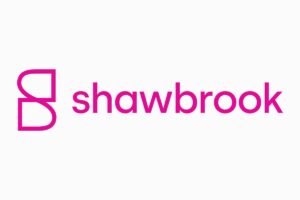
Shawbrook Bank, established in 2011, is a UK savings and lending bank that focuses on providing specialised financial services to individuals and businesses. It offers a variety of loan products and savings accounts for a diverse customer base.
Fees and charges
Shawbrook Bank does not offer a standard business current account, so there are no typical transaction fees or monthly account charges for such services. Their savings accounts for businesses come with competitive interest rates, and terms and conditions vary depending on the product.
Benefits for sole traders
While Shawbrook does not provide traditional business banking accounts, its range of savings products can be beneficial for sole traders seeking competitive interest rates for their surplus funds. The bank’s focus on tailored financial solutions means they offer personalised service suited to the needs of individual business owners.
Read our Shawbrook Bank review or visit the website.
Starling Bank
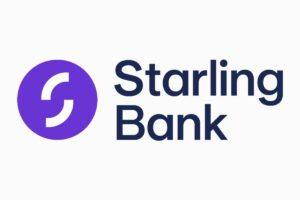
Starling Bank, launched in 2014, is a digital-only bank in the UK. It offers personal, business, and joint accounts, and is known for its innovative banking app and features aimed at simplifying financial management.
Fees and charges
Starling Bank’s business account is free of monthly fees. There are no charges for electronic payments, domestic transfers, or ATM withdrawals. For cash deposits at Post Offices, a fee of 0.3% (min £3) is charged. Starling also offers an overdraft facility with interest rates depending on individual circumstances.
Benefits for sole traders
Starling Bank is particularly advantageous for sole traders due to its no monthly fee policy and comprehensive app features, including instant notifications, spending insights, and easy integration with accounting software. The ability to deposit cash at Post Offices and the lack of fees for most banking activities make it a cost-effective option for small business owners.
Read our Starling Bank review or visit the website.
Tide

Tide, founded in 2015, is a UK-based digital-only bank focused on small businesses and sole traders. It offers a streamlined banking experience with features tailored to the needs of entrepreneurs and freelancers, such as invoicing, expense tracking, and integrated accounting.
Fees and charges
Tide offers a free basic account with no monthly fees. Charges apply for specific services, such as £1 per cash withdrawal and 20p for transfers out of Tide accounts. Cash deposits at Post Offices cost £1 and at PayPoints, they are charged at 3% of the deposit amount.
Benefits for sole traders
Tide’s digital platform is particularly advantageous for sole traders, offering efficient financial management through its mobile app. Features like direct invoicing from the account, automatic categorisation of expenses, and easy integration with popular accounting software like Xero and QuickBooks streamline the financial administration for a sole trader.
Read our Tide review or visit the website.
TSB
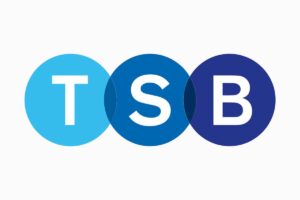
TSB, with a history dating back to 1810, is a well-established bank in the UK offering a range of banking services, including accounts for small businesses and sole traders. TSB is known for its commitment to local communities and personalised customer service.
Fees and charges
TSB’s business account offers 25 months of free banking for new businesses. After this period, a monthly fee applies, which varies based on the account plan chosen. Transaction fees, such as 30p per cheque paid in or out, apply after the free banking period. Cash deposits are charged at 70p per £100.
Benefits for sole traders
TSB’s extended free banking period is a significant benefit for new sole traders, helping to reduce initial operational costs. The bank also offers a range of support services, including access to business managers and financial advice, which can be particularly valuable for those starting out.
Read our TSB review or visit the website.
Ulster Bank
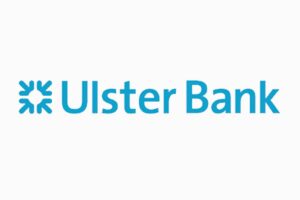
Part of the NatWest Group, Ulster Bank is a major bank in Northern Ireland, offering a wide range of personal and business banking services. It provides tailored financial solutions for small businesses and sole traders.
Fees and charges
Ulster Bank offers a business account with 18 months of free banking for new customers. After this introductory period, fees apply depending on the type of account and transaction. These fees include standard charges for cash handling and electronic payments.
Benefits for sole traders
The initial 18-month free banking period is a key advantage for sole traders with Ulster Bank, especially for those in the early stages of their business. Additionally, the bank provides various digital banking tools and access to a network of business advisors, which can aid in the efficient management and growth of a sole trader business.
Read our Ulster Bank review or visit the website.
United Trust Bank

United Trust Bank, established in 1955, is a specialist bank that provides a wide range of lending solutions and deposit accounts. It focuses on serving the needs of individuals, businesses, and developers in the UK, offering bespoke services tailored to their unique requirements.
Fees and charges
As a specialist bank, United Trust Bank primarily focuses on lending products and does not offer standard business current accounts. Therefore, typical banking fees associated with current accounts are not applicable. For their deposit accounts and lending products, terms and interest rates vary and are often tailored to the individual needs of the client.
Benefits for sole traders
While United Trust Bank does not offer traditional business banking services, its deposit accounts can be advantageous for sole traders looking to earn interest on surplus funds. Additionally, their range of bespoke lending solutions can provide valuable financial support for business development and growth.
Read our United Trust Bank review or visit the website.
Virgin Money

Virgin Money, part of the Virgin Group, is a UK-based bank offering a wide range of financial products including current accounts, savings, mortgages, and credit cards. It is known for its innovative approach and customer-focused services.
Fees and charges
Virgin Money offers a business current account with no monthly account fee. Charges for specific services include 50p for every £100 cash deposited. Electronic payments, including direct debits and standing orders, are free. The bank also offers free access to UK ATMs.
Benefits for sole traders
The absence of a monthly account fee makes Virgin Money an attractive option for sole traders. The bank’s digital banking tools, including online and mobile banking, facilitate easy management of finances. Additionally, Virgin Money provides access to a network of business lounges and offers exclusive discounts and benefits to its customers.
Read our Virgin Money review or visit the website.
Wise

Wise, initially known as TransferWise, is a financial technology company offering borderless banking solutions. Established in 2011, it specializes in international money transfers and multi-currency accounts, serving individuals and businesses globally.
Fees and charges
Wise charges low, transparent fees for currency conversion, typically a small percentage of the transaction amount. There are no monthly account fees for their multi-currency account. ATM withdrawals are free up to £200 per 30 days, after which a 2% fee applies. A small fixed fee applies for adding money to the account and converting currencies.
Benefits for sole traders
Wise is particularly beneficial for sole traders who deal with international transactions. The ability to hold and convert 50+ currencies at real exchange rates and make international transfers at low costs can be a significant advantage. The Wise multi-currency account also comes with features like direct debits and a debit card, which are useful for global business operations.
Read our Wise review or visit the website.
| Note |
|---|
| The details provided are based on recent information available and may be subject to change. |
Does a sole trader need a business bank account?
Yes, a sole trader or freelancer should have a business bank account to make it easier to keep track of their business finances. This separate account will also help ensure that personal and business transactions are not confused or mixed up.
A sole trader can open a dedicated business bank account at many UK banks, building societies or credit unions – they may need to provide information such as their name and address, business name (if applicable) and National Insurance number.
Most banks will offer a range of services to sole traders, including:
- A dedicated account for business transactions
- Business banking cards for easy payments and withdrawals
- Online banking facilities
- Overdrafts or loans tailored to businesses
- Business credit and debit cards
- Access to business savings accounts
Which business bank account is best for a sole trader?
There is no definitive answer as to which business bank account is best for a sole trader, as it will depend on their individual needs and circumstances. The most important factor when selecting the right business bank account is determining if the account has all the features that are necessary to support the specific requirements of running a sole trader business.
Features to look for in a sole trader bank account
Choosing the right business bank account for a sole trader is key to running their business successfully. The best bank account for sole traders will depend on their individual needs and preferences, but there are certain features that all small businesses should look out for when selecting an account.
Sole trader banking services
First, consider the types of banking services offered by each potential account. A basic current account may be suitable for a sole trader who only needs to make small payments and withdrawals, but more complex transactions may require an account with more features, such as overdraft facilities or merchant services.
Tailored bank accounts
Additionally, some banks offer accounts tailored specifically towards sole traders, so it’s worth researching all the options before making a decision. These accounts may offer different levels of interest on balances, as well as other benefits such as access to customer support and exclusive offers for sole traders.
Account fees and charges
It’s also important to consider the fees associated with each account. Some accounts may come with a monthly fee or minimum balance requirement, so make sure you read through the terms and conditions to determine which account best suits your needs. The fees may vary depending on the type of account you choose, so compare across all the options to get the right deal for your business.
How to open a sole trader bank account
Once you have selected the right account for your sole trader business, the next step is to open it. Most banks will require some documentation in order to open a business bank account, but the exact requirements may vary from institution to institution.
1. Gather the necessary documents
To get started with opening an account as a sole trader, first gather your necessary documents such as proof of identity and address. Depending on the institution, you may need to present a passport or driver’s license as well as proof of address such as a utility bill or bank statement.
You should also be prepared with information about your sole trader business, such as its registered name, purpose, and any relevant financial data including cash flow projections and profit and loss statements.
2. Fill out the application form
Once you have gathered all of the necessary documents, contact your chosen bank to request an application form for a business account. You can usually do this online or in person at the bank’s branch. Then fill out the required information on the form and send it back to the bank, along with any other supporting documents that might be required.
3. Activate the account
Once your application has been approved, you’ll receive a confirmation email or letter from the bank with instructions on how to activate your new account. You can then start using it immediately for all of your banking needs.

